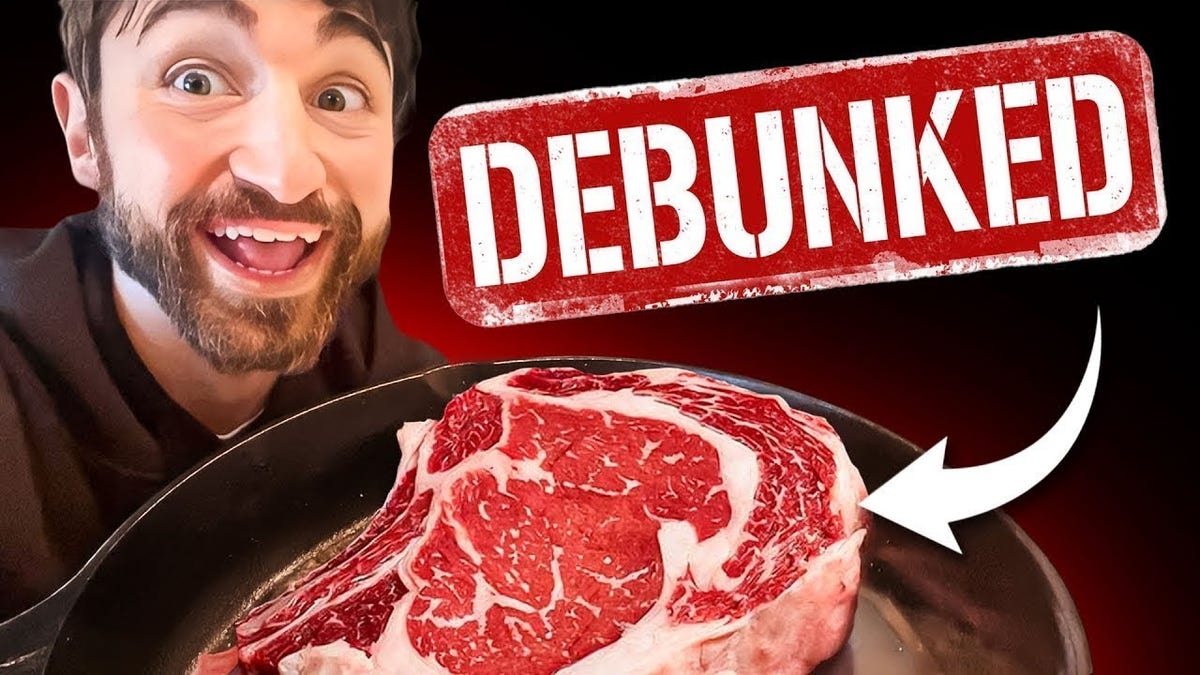The carnivore diet, a regimen solely comprising animal products, has sparked considerable debate. Proponents tout its potential benefits, while critics express concerns about its nutritional limitations. Harvard medical student and researcher Nick Norwitz recently addressed eight common misconceptions surrounding this dietary approach.
Norwitz, who holds a PhD in metabolic health, emphasizes the importance of evidence-based analysis. He points to studies, including one from Harvard, suggesting positive outcomes for some individuals on the carnivore diet, such as improved overall health and well-being. However, he acknowledges the lack of randomized controlled trials, which are crucial for establishing definitive scientific conclusions.

One frequent concern is the risk of scurvy due to insufficient vitamin C. Norwitz explains that while meeting the recommended daily intake solely from meat is challenging, it's not impossible. He also notes that his own vitamin C levels remained normal during a six-month carnivore experiment.
Another myth addresses the issue of constipation due to a lack of fiber. Norwitz clarifies that while fecal mass may decrease, bowel movements continue. He even suggests that eliminating fiber might alleviate symptoms for some individuals with irritable bowel syndrome.

The impact on athletic performance is also debated. Norwitz highlights the body's ability to adapt to carbohydrate restriction and utilize fat as fuel, citing a study of Iron Man athletes.
Concerns about heart health are addressed by Norwitz, who acknowledges the potential for increased LDL cholesterol with high red meat and saturated fat intake. However, he stresses individual variability and the influence of other factors, such as insulin resistance and inflammation.

Norwitz also challenges the notion that the carnivore diet constitutes an eating disorder. He argues that if the diet improves physical or mental health, it doesn't fit the criteria of a restrictive eating pattern with negative consequences.

Regarding brain health, Norwitz critiques research linking red meat intake to dementia, citing methodological limitations and confounding factors. He emphasizes the distinction between processed and unprocessed red meat.

Finally, Norwitz acknowledges that the carnivore diet isn't suitable for everyone. He advocates for personalized approaches based on individual needs and responses.
Other medical professionals offer additional perspectives. Dr. Marc Siegel expresses concerns about the high saturated fat content and cholesterol, recommending the Mediterranean diet as a healthier alternative. Dr. Georgia Ede, however, views carnivore diets as potentially beneficial for certain individuals, particularly in addressing food sensitivities and other specific health concerns.

The carnivore diet remains a subject of ongoing discussion and research. While it may offer advantages for some, it's essential to approach it with a balanced perspective, considering both potential benefits and risks, and consulting with healthcare professionals for personalized guidance.








